Berlinale 2022
It’s rare for the Berlinale to be so female-dominated
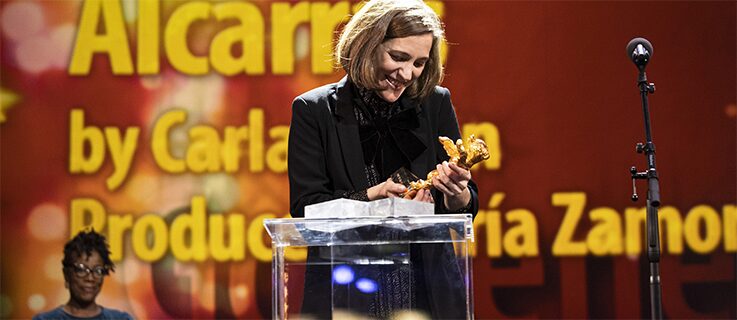
The Berlinale Bears have been awarded – six out of eight prizes went to female filmmakers. It’s yet another example of how the festival is leading the way this year.
By Ula Brunner
The Berlinale jury decision on Wednesday afternoon did come as something of a surprise. The truth is Alcarràs, a Catalan drama by Carla Simón, wasn’t considered the absolute frontrunner for the Golden Bear. But the atmospherically intense story from rural Catalonia certainly merits the award: the director uses a warm array of spectacular colours to tell the story of a disappearing lifestyle. The Solé family has been running a peach plantation on a leased estate for many generations, and their orchards are soon to be replaced with solar panels. The film features an amateur cast made up of locals from the village of Alcàrras and follows the individual family members during their final summer on the farm, which is more than just a workplace – it’s the focal point of everyone’s lives.
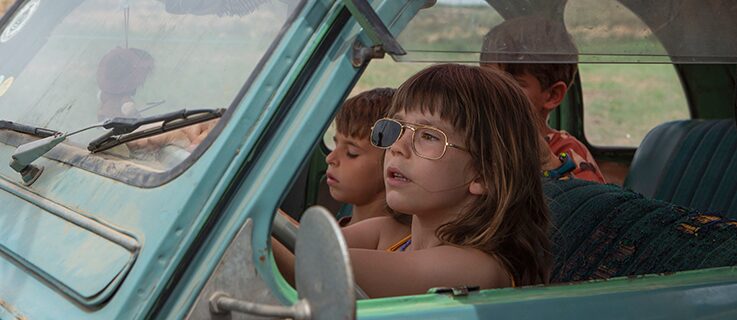 “Alcarràs” by Carla Simón, Competition, Berlinale 2022 | Photo (detail): © LluisTudela
“Alcarràs” by Carla Simón, Competition, Berlinale 2022 | Photo (detail): © LluisTudela
Silver Bear for “Rabiye Kurnaz gegen George W. Bush”
Germany scooped no fewer than two awards – to be specific these went to Andreas Dresen’s Rabiye Kurnaz gegen George W. Bush. (Rabiye Kurnaz vs. George W. Bush). Meltem Kaptan received recognition for her dramatic performance in one of the starring roles. The German-Turkish talk show host and comedian plays the mother of Guantanamo detainee Murat Kurnaz with an exhilarating energy.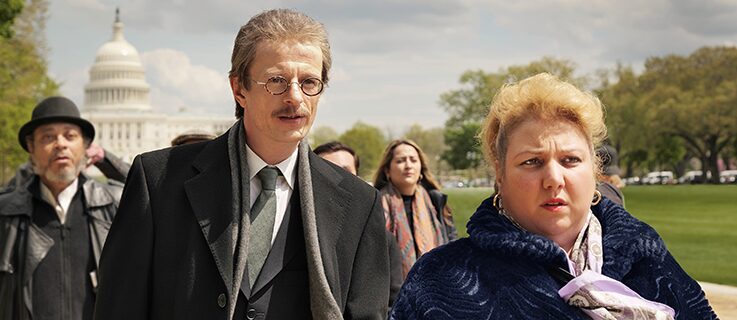 “Rabiye Kurnaz vs. George W. Bush“ by Andreas Dresen | Photo (detail): © Andreas Hoefer / Pandora Film
“Rabiye Kurnaz vs. George W. Bush“ by Andreas Dresen | Photo (detail): © Andreas Hoefer / Pandora Film
Six out of eight Bears bagged by women
18 films from 17 production countries made up the field in this year’s competition – and women occupied the director’s chair in seven of these. And the awards evening at the Berlinale Palast was dominated by female filmmakers too, when they scooped six of the eight Bears. That bodes well – bearing in mind that the Berlinale is openly committed to gender equality in the film industry.The leading French film director and writer Claire Denis received Best Director for her intense relationship drama Avec amour et acharnement (Both Sides of the Blade), starring Juliette Binoche and Vincent Lindon in an impressive performance.
A completely different kind of story has brought Natalia López Gallardo into the limelight with Robe of Gems. She uses subtle means and powerful images to communicate the ruthlessness of drug cartels in Mexico without actually depicting the brutality in images. The jury awarded the Mexican-Bolivian director a Silver Bear in recognition of this outstanding film debut.
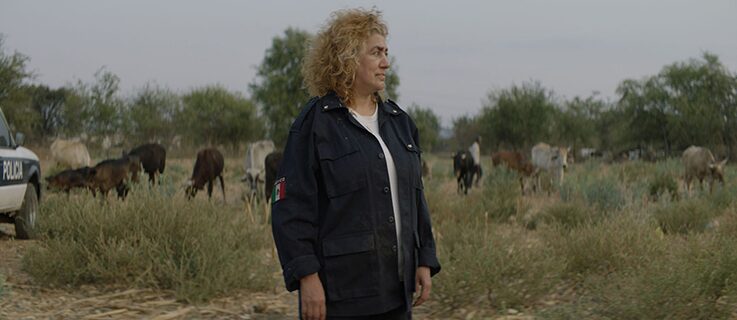 "Robe of Gems" by Natalia López Gallardo, Competition, Berlinale 2022 | Photo: © Visit Films
"Robe of Gems" by Natalia López Gallardo, Competition, Berlinale 2022 | Photo: © Visit Films
Regular guests
There were plenty of familiar names in the competition this year too – for instance Cambodian filmmaker Rithy Panh. The jury awarded him the Silver Bear for Outstanding Artistic Contribution for his dystopian film essay collage Everything Will Be Ok. South Korean director Hong Sangsoo entered the competition for the third time running. The Novelist’s Film (Grand Jury Prize) is a deftly executed story about chance encounters. Hong is simply observing life, as he so often does.What a shame that incredible films like La Ligne, Ursula Meier’s devastating psychogram of a dysfunctional family, or Return to Dust by Li Ruijun, came away empty-handed. Like Alcarràs – yet in a completely different way – the Chinese competition entry tells the story of the suppression of traditional lifestyles. A woman with a mild disability and her husband live together in the countryside, working hard and enjoying the company of each other, and initially refuse to move to a nearly tower block estate.
The pandemic is everywhere
Dramas, documentary formats, silent observation – in the second year of the pandemic, the Berlinale Competition section endeavours to capture the diversity of cinema with a carefully chosen combination of different film genres. In terms of theme, many of the entries explore love and longing, the importance of family, female self-discovery and emotional and social upheaval. It’s a robust festival programme. But there weren’t really any artistic masterpieces – hefty, controversial formats such as those regularly seen at the big festivals in Cannes and Venice.Unlike Radu Jude’s satire Bad Luck Banging or Loony Porn, which won a Golden Bear in 2021, none of the films in the competition referred directly to the pandemic. But it was all the more present amongst the audience and on the festival site. Things remained quiet in the Postdamer Platz locality, the normally buzzing hub of the Berlinale. No throngs of people outside cinemas, no box office queues.
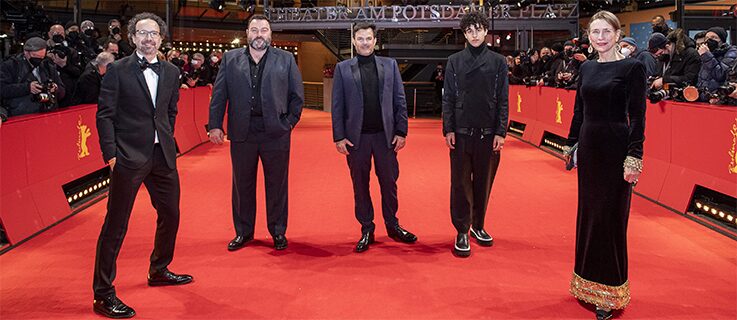 Festival Impressions Berlinale 2022: Mariette Rissenbeek, Carlo Chatrian at the premiere of “Peter von Kant” | Photo (detail): ©Alexander Janetzko, Berlinale 2022
Festival Impressions Berlinale 2022: Mariette Rissenbeek, Carlo Chatrian at the premiere of “Peter von Kant” | Photo (detail): ©Alexander Janetzko, Berlinale 2022
So the intentions of Mariette Rissenbeek and Carlo Chatrian to go ahead with an in-presence festival with stringent hygiene regulations despite all objections seem to have been a success, at least to some extent. Despite the reduced programme, a rescheduled Bear award ceremony and Covid rules, a “keen interest” was noted amongst audience members and industry professionals, said festival organisers. Indications clearly show that culture is happening – even during the pandemic. Whether that will prove sufficient to maintain the status of the Berlinale as one of the world’s most important festivals in future remains to be seen.